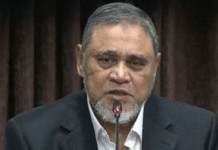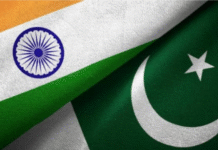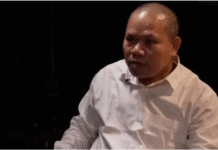
The International Commission on Chittagong Hill Tracts (CHT) Affairs on Tuesday suggested that land grabbing in the CHT be stopped immediately to ensure the rights of common people in the region.
The commission in its report on its recent field visit to the CHT said common people — both from the indigenous communities and from the Bangali community – in the CHT have no control over most of the lands due to grabbing under the present power structure.
Reading out the report at a press conference at the Jatiya Press Club, member of the International Commission on CHT Affirs Iftekharuzzaman said most lands in the CHT are now controlled by several government organisations, security forces, private companies and a vested quarter of land grabbers.
Many of the land grabbers are not residents of the CHT, but are occupants of vast lands, rubber and teak plantations and other business establishments, he said.
The vested interest group does not want to see any change in the situation under the current power structure which is trying to cover its interest by raising false claims that the ‘Bangali’ people of the region are being affected by the activities of the International Commission on CHT Affairs, he noted.
In the report, the commission alleged that so-called Bangali rights oganisations Samaodhikar Andolon tried to obstruct the commission delegation during the visit in many ways, including confining the delegation to a motel in Rangamati and throwing brick chips at its vehicle.
Another commission member Dr Swapan Adnan said there is nothing called Bangali interest in the hill tracks.
Voicing up Bengali interest is actually a cover for illegal land grabbing by influential quarters, he said adding that they do not want the CHT Peace Accord to be implemented.
Co-chair of the commission Sultana Kamal alleged that despite giving assurances of safety, the law enforcers remained ineffective when the commission delegation came under attack by the activists of the so-called ‘Bangali’ rights organisations.
Source: UNB









